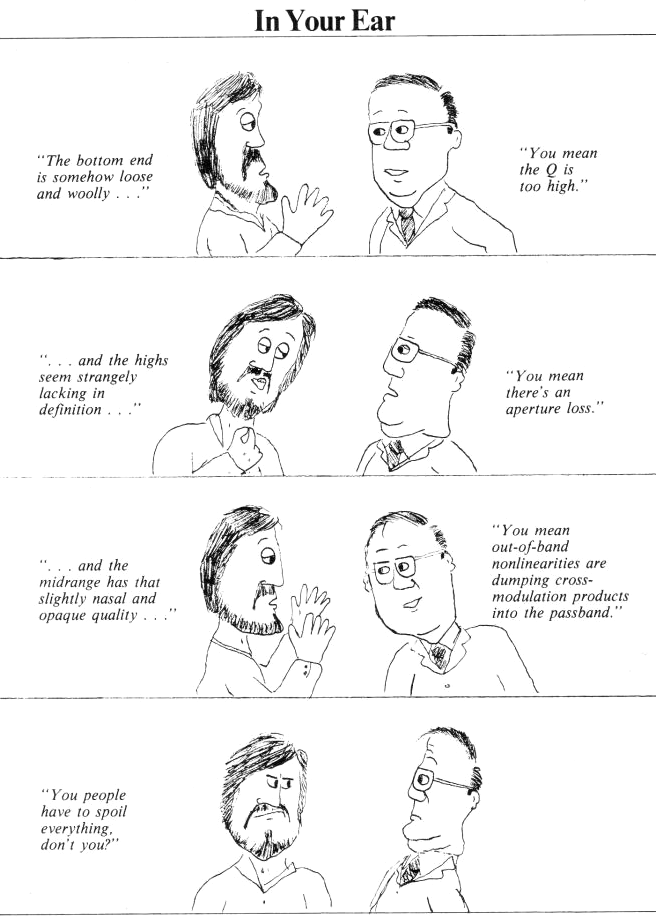How do you define or measure good, better, best? How do you measure taste? What sounds good to you may sound bad to me, or vice versa, so who is right? How DOES it sound? How does it sound in absolute terms? Can one describe sound in absolute terms?
Klaus
Arn't we comparing our perception of a live event to that of a reproduction? Maybe I'm just being naive but it really doesn't seem difficult to compare peoples response in that context.
Put a cello and player between your speakers or whatever takes your fancy. Play with the components and see how close you get. There is most definately an 'absolute sound', the system ain't going to sound 'better' than the live instruments.
Comparing without a reference, that creates a bit of a problem.

















